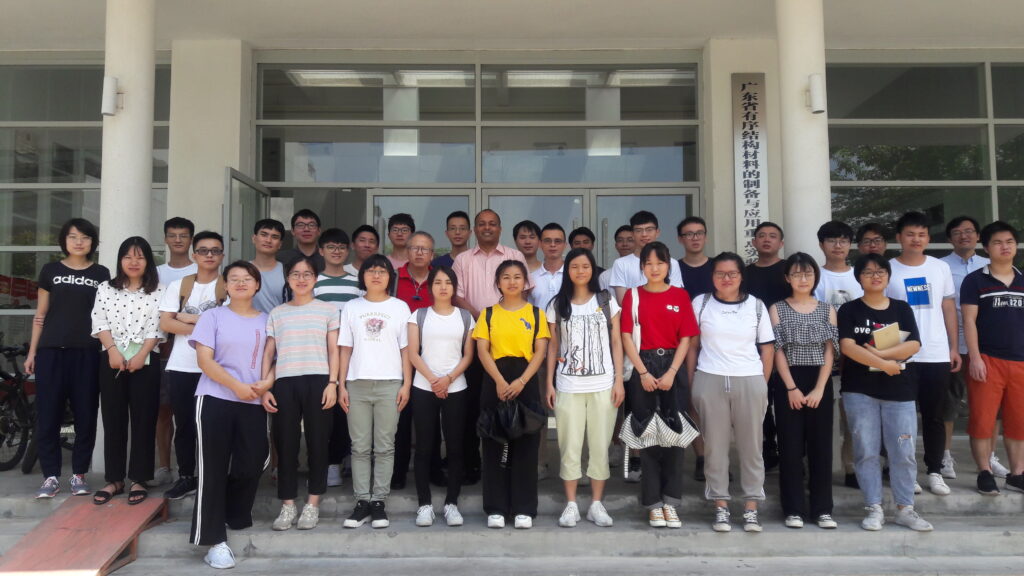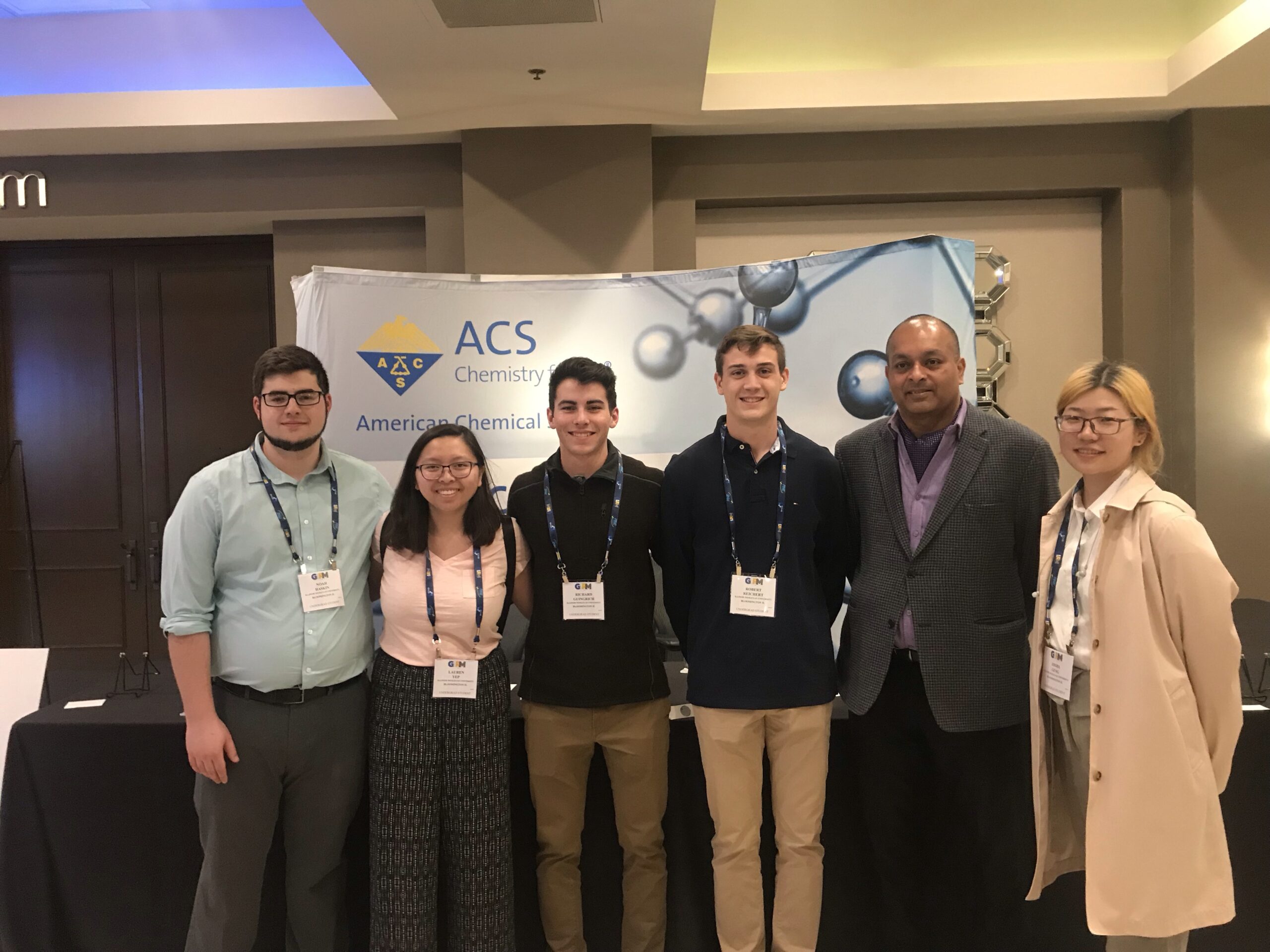According to recent statistics, approximately 6,000 people in the United States apply for Fulbright awards yearly. Fewer than 800 are awarded and rarely does one person win two.
Nevertheless, Ram Mohan, who received his Ph.D. from UMBC in 1992, was awarded a Fulbright Teacher-Scholar Grant in 2012, and a second Fulbright Teacher-Scholar Grant in 2020 to teach Green Chemistry in India, where he was born and raised, before moving to Baltimore at the age of 21 to attend UMBC.
Now a professor of chemistry at Illinois Wesleyan University, Mohan fondly remembers the people who inspired him as a student at UMBC.
Finding a Research Family at UMBC
Mohan graduated with honors in chemistry from a Hansraj College in New Delhi, and, like many of his friends, he says, wanted to pursue higher education in the United States. His interests were in organic chemistry but he really wanted to focus on the relationship between the environment and cancer. The incidence of cancer, often caused by environmental pollution, is increasing worldwide, especially in India.
Through his research, in the 1980s, Mohan discovered that the work of UMBC’s Dale Whalen, now professor emeritus of chemistry, matched his own interests. “Simply put,” he relates, “I would not be where I [am] professionally without the kind and caring faculty at UMBC,” adding, “from the day I arrived, [Professor Whalen] took me under his wing . . . whether taking me to the Social Security office or showing me lab techniques.”
“The faculty at UMBC,” explains Mohan, “not only did cutting-edge research, but its members also cared about the success of each and every student.” Whalen was not the only UMBC professor he remembers fondly. He also mentions Professors Creighton, Hosmane and Pollack. In fact, Mohan says, the entire Chemistry Department “hung out together,” including the staff, Anne Geffert, Patty Gagne, and Audrey Mahoney. He stays in touch with many of them.
After graduating from UMBC, Mohan pursued postdoctoral work at the University of Illinois Urbana Champaign. He began his teaching career in 1994 as a visiting professor at Coker College in Hartsville, South Carolina. After two years, he moved back to Central Illinois as an Assistant Professor at Illinois Wesleyan University (IWU), a small selective liberal arts college, where he remains today. Again, Mohan claims his current passion for teaching stems from being a teaching assistant at UMBC for many semesters.

Raising Awareness
His research is inspired by green chemistry—principles and application—and he has traveled to Hong Kong, Malaysia, China and throughout India, lecturing and conducting workshops, which is what he now is doing in India as a Fulbright-Nehru scholar.
He is especially passionate about taking green chemistry to small, undergraduate colleges in rural areas where most students come from a farming background. “Raising awareness for environmental problems in such areas,” he explains, “will help to solve India’s overall environmental problems.”
For example, a typical workshop consists of 10 lectures on various green chemistry topics and includes interesting case studies that highlight environmental problems and solutions, using green chemistry concepts.
Mohan also has introduced green chemistry into the curriculum at Illinois Wesleyan University and made significant strides in “greening” organic chemistry laboratory experiments. His course at IWU especially highlights environmental problems in the United States. Undergraduate students at IWU take this enthusiasm for green chemistry on to graduate school and beyond into their professional careers.
Giving Back
Green chemistry, or sustainable chemistry, is the design of chemical processes and products that use nontoxic chemicals. The goal of green chemistry is to minimize the impact of chemicals on human health and the environment.
What Mohan finds especially rewarding is “the chance to give back to [his] country of birth while representing the United States as a cultural ambassador.”
Although Mohan enjoys his work—both teaching and research—at Illinois Wesleyan, and he likes to travel by train between Bloomington and Chicago, he says that even after 28 years he still misses UMBC. “Maryland and Baltimore always will remain my first home in America,” he says proudly.
– By Lynne Agress
* * * * *
Header Image: Ram Mohan (second from right) and his Illinois Wesleyan University undergraduate students at The Great Lakes Regional Meeting (May 2019, Lisle, IL).
Tags: Chemistry, CNMS, GraduateSchool, Spring 2020

